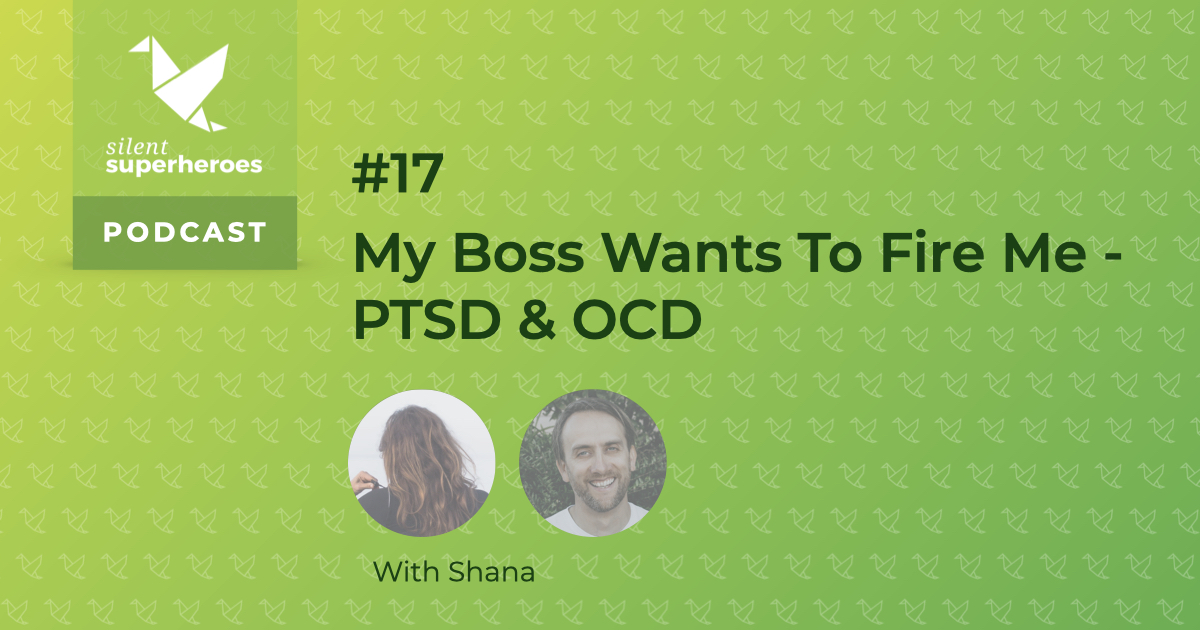Shana is an HR professional managing bipolar, PTSD, OCD and body dysmorphic disorder at work. On their own, any one of these conditions can be overwhelming. Managing all of them together should be an insurmountable obstacle, but it’s one Shana overcomes. Even so, there are serious consequences, like having 31 jobs in 20 years and attempting suicide.
Listen To Episode 17
Podcast: Play in new window | Download (Duration: 35:16 — 18.6MB)
Show Notes
In the first of two episodes featuring Shana, we’ll hear her experience with PTSD and OCD at work. Shana will explain the precision required to set her clocks and the complexity of hanging her wardrobe. She’ll talk about how her PTSD caused her to hold so many jobs. And she explains why PTSD and OCD are difficult conditions to treat.
Don’t miss the next episode where we’ll pick up Shana’s story again and learn what body dysmorphic disorder is, and get an honest reflection on attempting suicide.
About OCD
People with Obsessive-compulsive disorder (OCD) experience unwanted thoughts and fears (obsessions) that lead to repetitive behaviors (compulsions). These obsessions and compulsions interfere with daily activities and cause significant distress.
People with OCD try to ignore or stop obsessions, but that only increases distress and anxiety. Because of the distress, people with OCD feel driven to perform compulsive acts to try to ease their stress. Despite efforts to ignore or get rid of bothersome thoughts or urges, they keep coming back. This leads to more of the same behavior — the vicious cycle of OCD.
Getting Support
Remember, the people you hear on Silent Superheroes are sharing their opinions about mental health and mental illness. They are not giving advice. For that reason, please consult with your care provider before making a change to your treatment approach.
It’s important to take your mental health seriously. Consequently, if you need to speak to someone you can call 1-800-273-8255, or text crisistextline.org on 741741. Both provide 24×7 confidential counseling to people in the United States. Worldwide visit http://iasp.info/resources/Crisis_Centres/
Because you listened to the podcast, you can help others find it by leaving us a review on iTunes. Or if you don’t use iTunes, leave a review on your favorite podcasting service.


